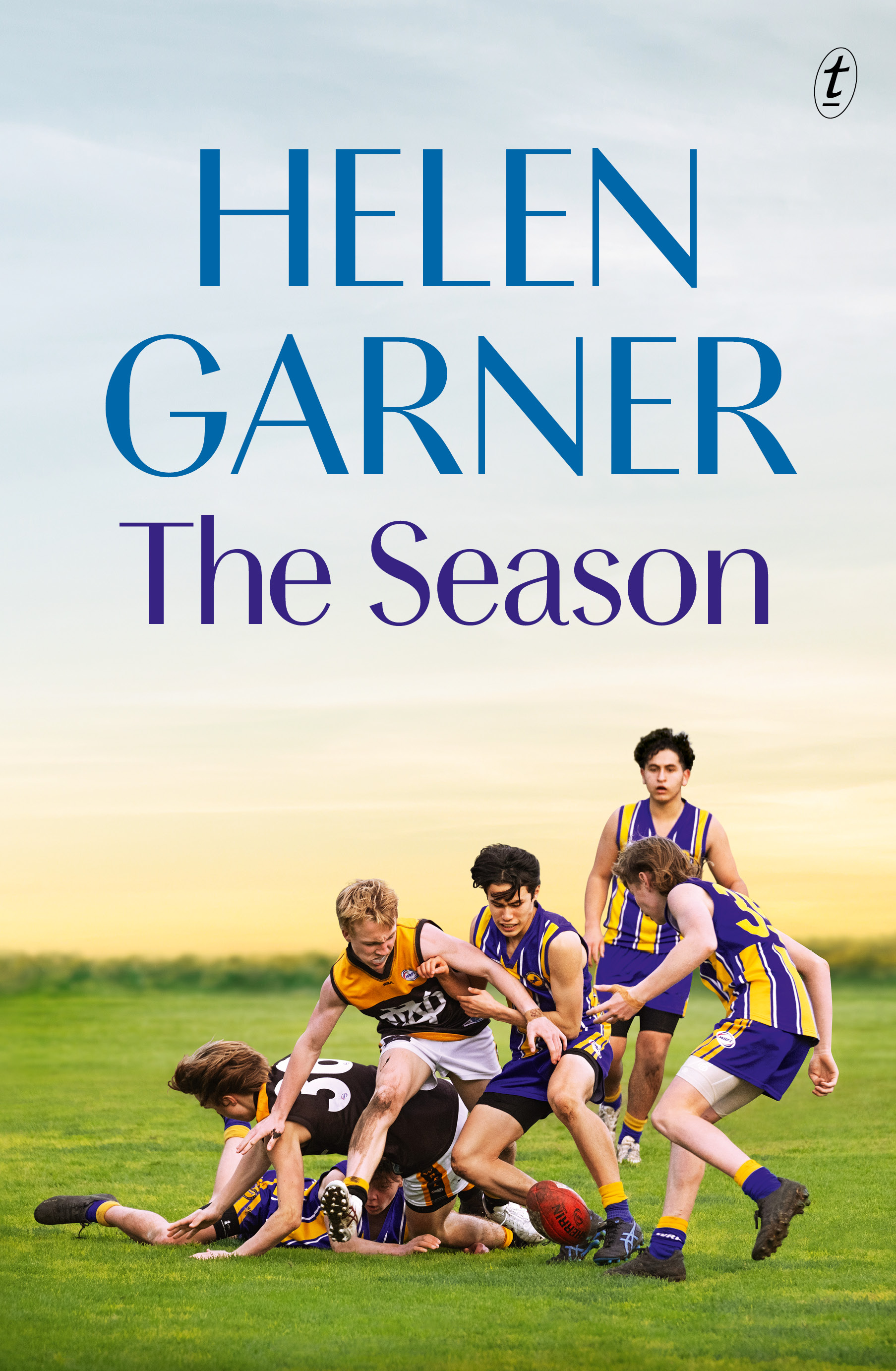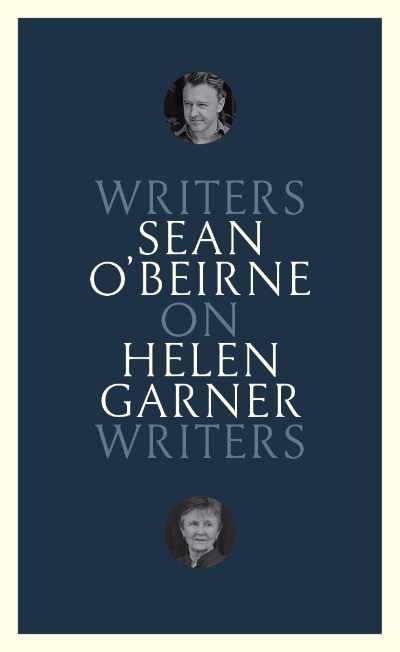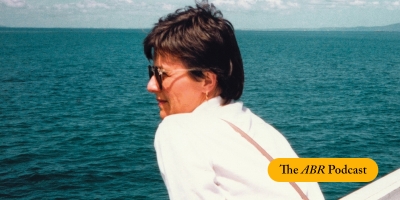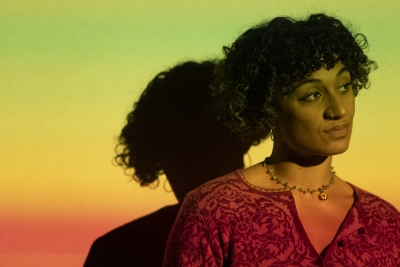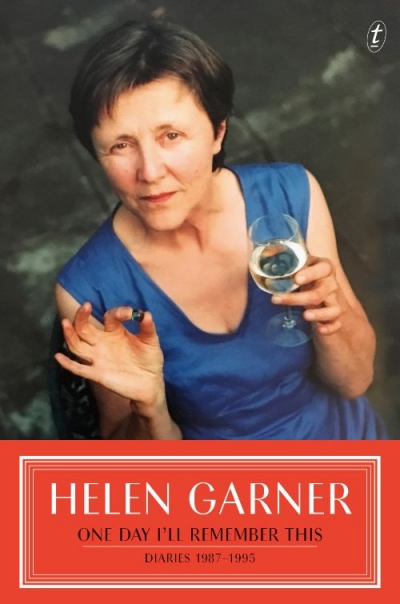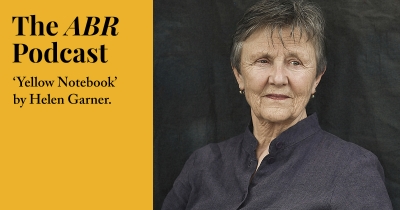Helen Garner
Film | Theatre | Art | Opera | Music | Television | Festivals
Welcome to ABR Arts, home to some of Australia's best arts journalism. We review film, theatre, opera, music, television, art exhibitions – and more. To read ABR Arts articles in full, subscribe to ABR or take out an ABR Arts subscription. Both packages give full access to our arts reviews the moment they are published online and to our extensive arts archive.
Meanwhile, the ABR Arts e-newsletter, published every second Tuesday, will keep you up-to-date as to our recent arts reviews.
Recent reviews
 Helen Garner (born 1942) is an Australian novelist, short-story writer, screenwriter and journalist. Garner’s first novel, Monkey Grip, published in 1977, immediately established her as an original voice on the Australian literary scene – it is now widely considered a classic. She has a reputation for incorporating and adapting her personal experiences in her fiction, something that has brought her widespread attention, particularly with her novels, Monkey Grip and The Spare Room (2008).
Helen Garner (born 1942) is an Australian novelist, short-story writer, screenwriter and journalist. Garner’s first novel, Monkey Grip, published in 1977, immediately established her as an original voice on the Australian literary scene – it is now widely considered a classic. She has a reputation for incorporating and adapting her personal experiences in her fiction, something that has brought her widespread attention, particularly with her novels, Monkey Grip and The Spare Room (2008).
Throughout her career, Garner has written both fiction and non-fiction. She attracted controversy with her book The First Stone (1995) about a sexual-harassment scandal in a university college. She has also written for film and theatre, and has consistently won awards for her work, including the Walkley Award for a 1993 Time Magazine report. Adaptations of two of her works have appeared as feature films: her debut novel Monkey Grip and her true-crime book Joe Cinque’s Consolation (2004) – the former released in 1982 and the latter in 2016.
This week on The ABR Podcast, Neil Thomas reviews On Xi Jinping: How Xi’s Marxist Nationalism is shaping China and the world by Kevin Rudd. Thomas explains that even China watchers find it hard to be clear on the thoughts and plans of the leader of the Chinese Communist Party. They disagree, he tells us, on basic, critical questions, such as for how long Xi will rule. ‘Enter Kevin Rudd’, Thomas writes. ‘In his latest book, former prime minister Kevin Rudd adds a worthy new chapter to his life of public service, digesting thousands of pages of “Xi Jinping Thought” so that you do not have to’. Neil Thomas is a Fellow on Chinese Politics at Asia Society Policy Institute’s Center for China Analysis in Washington DC. Here is Neil Thomas with 'The red thread: Xi Jinping's ideology of power' by Neil Thomas, published in the December issue of ABR.
... (read more)This week on The ABR Podcast Jonathan Ricketson reviews The Season by Helen Garner. Ricketson explains that The Season is a memoir of Garner watching her grandson ‘Amby play for the Flemington Juniors in the Under-16s, from February to August 2023’. The experience involves an effacement of self, the grandmother on the sidelines rendered a ‘silent witness’. Jonathan Ricketson is completing a PhD in Creative Writing at Monash University, where he is working on a novel. Here is Jonathan Ricketson with ‘Silent witness: A “little life-hymn” from Helen Garner’, published in the December issue of ABR.
... (read more)The Writers on Writers series aims to tease some of Australia’s literary treasures out of the Aladdin’s cave of canonicity. A collaboration between publisher Black Inc., the University of Melbourne, and the State Library of Victoria, it began in 2017 with Alice Pung’s book on John Marsden and Erik Jensen’s on Kate Jennings. The series now boasts eleven titles, the most recent of which is Sean O’Beirne’s book on Helen Garner ...
... (read more)‘I would like to write about dominance, revulsion, separation, the horrible struggles between people who love each other,’ wrote Helen Garner, foreshadowing How to End a Story, the final instalment of her published diaries, following Yellow Notebook (2019) and One Day I’ll Remember This (2020). While the first two volumes spanned eight years apiece, How to End a Story spans only three. Starting in 1995, shortly after shortly after the release of Garner’s The First Stone, it details the dissolution of her marriage to another writer, V. As Lisa Gorton notes, this volume differs from its precursors both in tone and focus: ‘This one is as compelling as a detective story. This one is edited with the sense of an ending.’
... (read more)How to End a Story: Diaries 1995–1998 by Helen Garner
On the evening of Wednesday, 16 October 1991, after the annual Valedictory Dinner at Melbourne University’s august Ormond College, the Master allegedly made unprovoked sexual advances to two female students. These incidents lead to a scandal which rocked the Melbourne establishment, caused the exit of the Master, and became the basis of Helen Garner’s hugely controversial exploration of sexual politics, class, and power, The First Stone (1995).
... (read more)One Day I’ll Remember This: Diaries 1987–1995 by Helen Garner
In our new episode, ABR Editor Peter Rose reviews Yellow Notebook, the first volume of the diaries by Helen Garner, a most anticipated book. Here, we delve into Garner's own private musings, the diaries she kept during the pivotal years of her writing life.



